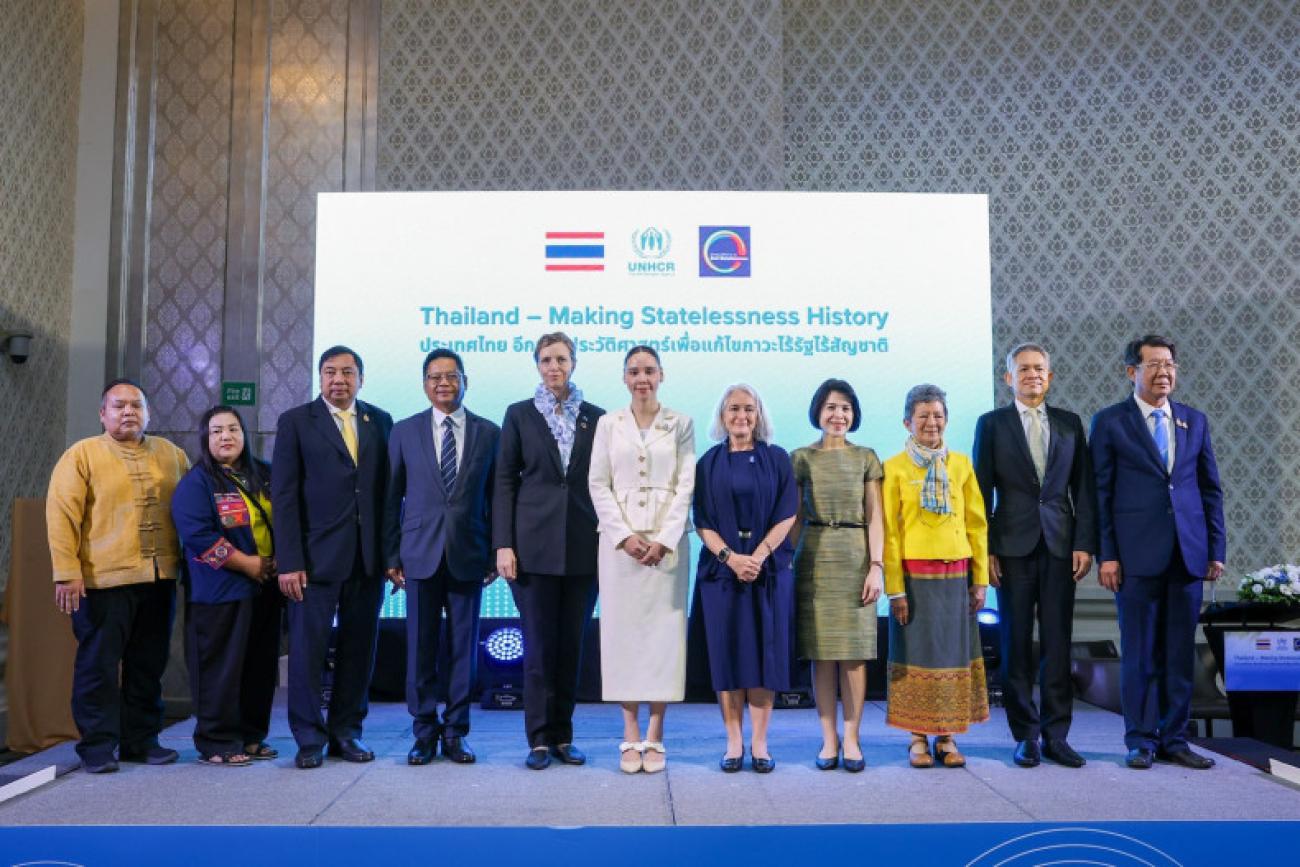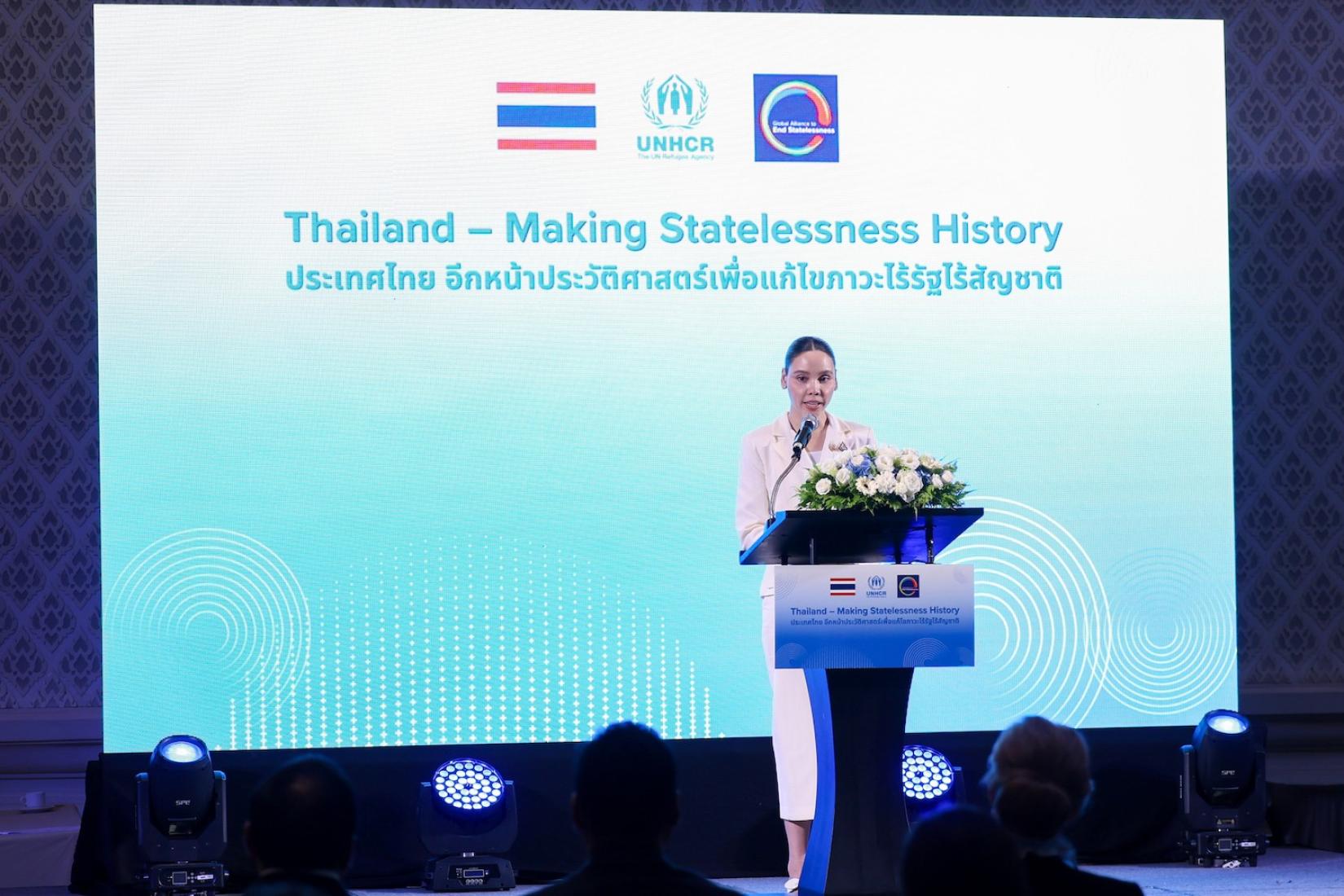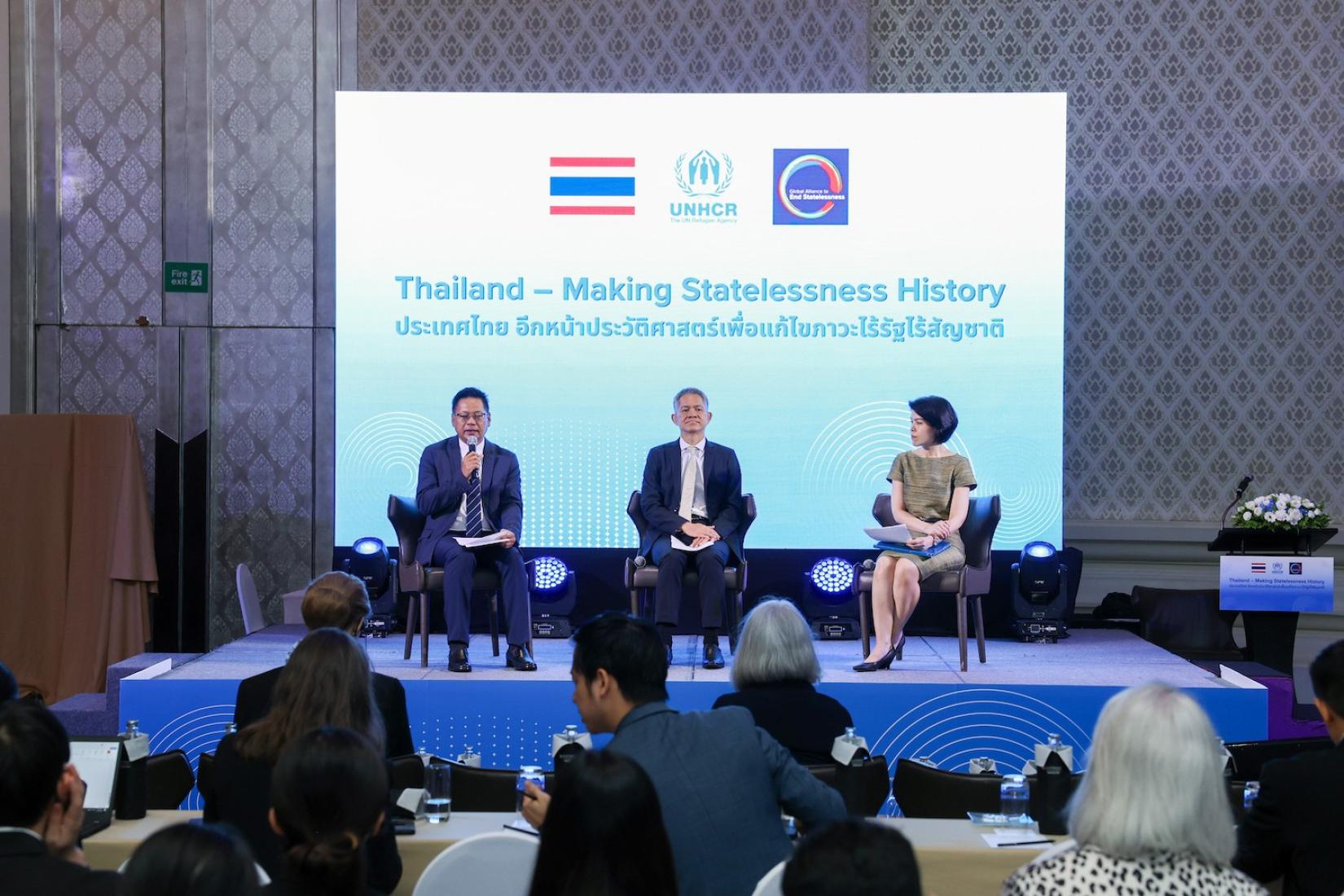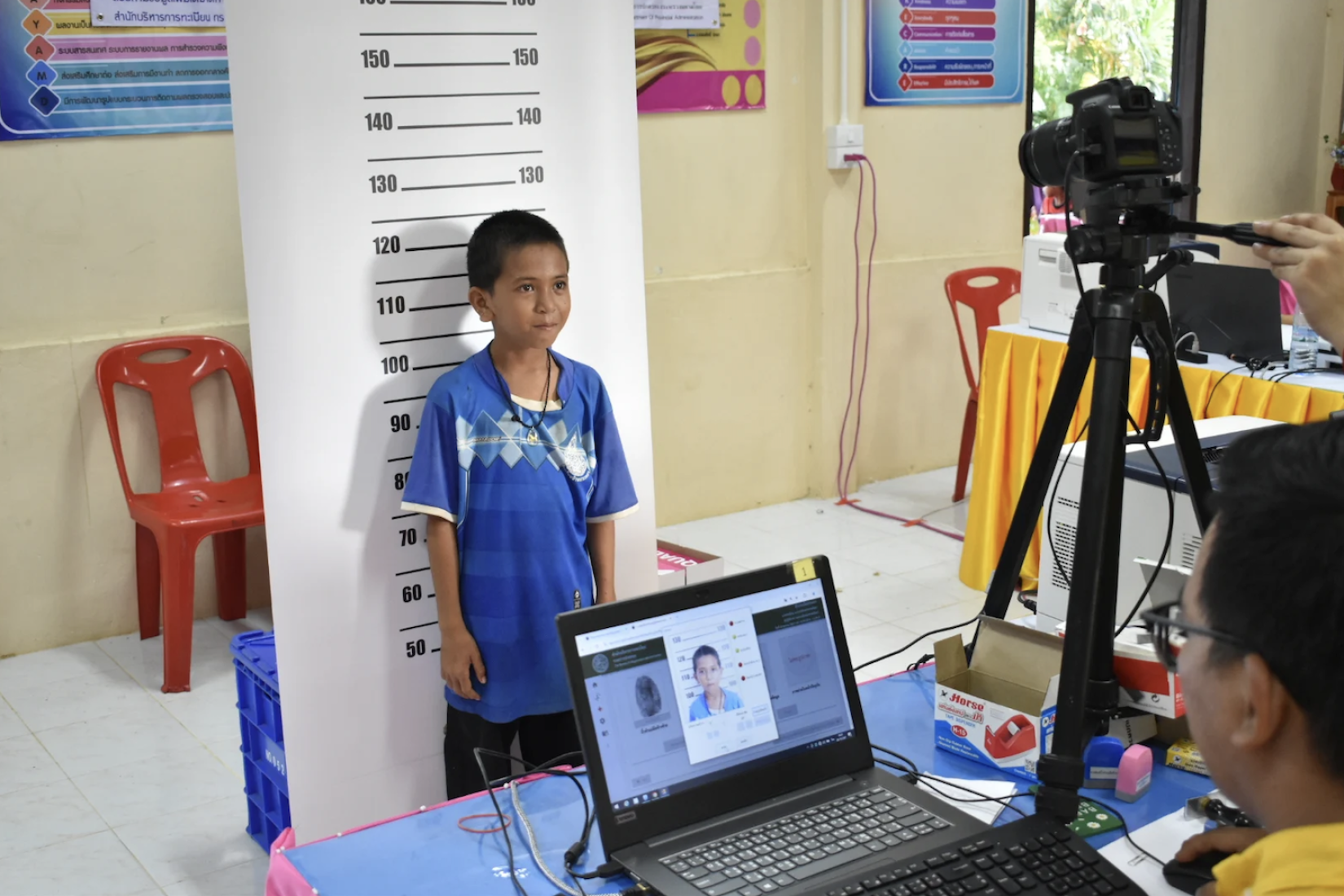UNHCR supports Thailand in making statelessness history

Building on the recent resolution by the Thai Cabinet to accelerate a pathway to nationality for nearly half a million stateless people, the Royal Thai Government (RTG) today reaffirmed its commitment to make statelessness in Thailand a thing of the past. At an event in Bangkok coordinated between the Royal Thai Government and UNHCR,
the UN Refugee Agency, senior Thai officials shared Thailand’s bold vision on how to empower close to half a million people who are currently stateless to become productive Thai nationals.
“Our ultimate goal is to enable these individuals to become fully recognised members of our society,” said Sabeeda Thaised, Deputy Minister of Interior of Thailand. “Together, let us ensure that every person has a place to call home, and that statelessness will one day be a challenge of the past.”
UNHCR, mandated by the UN General Assembly to prevent and reduce statelessness,
is working closely with the RTG to ensure the successful implementation of the Cabinet resolution, which will streamline permanent residency for 335,000 long-term residents of Thailand and nationality for 142,000 of their Thailand-born children. It is one of the most ambitious initiatives to reduce statelessness anywhere in the world.

“Thailand is leading by example” said Tammi Sharpe, UNHCR’s Representative in Thailand. “This unprecedented step forward will drastically reduce statelessness in Thailand. We hope it will also inspire countries in the region and beyond to take similar bold steps too.”
The Cabinet resolution demonstrates Thailand’s leadership on the world stage as
a member of the Global Alliance to End Statelessness. The Alliance was launched last month in Geneva, just as the #IBelong Campaign to End Statelessness marked its tenth and final anniversary. “The launch of the Campaign in 2014 was a strategic forward-looking decision, despite its ambitious goal of ending statelessness within a decade,” said Ruven Menikdiwela, UNHCR’s Assistant High Commissioner for Protection. “It contributed to the progress we see today, including in terms of the much stronger global consensus on the need to address statelessness.”

Based on its global expertise in statelessness, UNHCR will continue supporting the RTG, for example by contributing equipment for its mobile registration drives. UNHCR will also continue partnering with civil society groups and organisations led by stateless or formerly stateless people to assist stateless communities with processing their applications through the accelerated pathway for permanent residency or nationality. Such organisations led the discussions in the event in Bangkok, joining with RTG officials and Thai academics to recommend how to maximise stateless people’s contributions to Thailand.
“As someone who was once stateless myself, I am so happy that my stateless family members and friends will be able to acquire nationality or permanent residence in Thailand much quicker,” said Meefa Asong, President of the Local Community Network (LCN),
the first stateless-led organisation in Thailand to be an official partner of UNHCR. “We are eager to show our loyalty to Thailand and commitment to help build the country.”
By resolving the statelessness of some 484,000 people, Thailand will unlock the potential for these individuals—who already have strong ties to Thailand—to contribute fully to the nation’s economic and cultural fabric.




